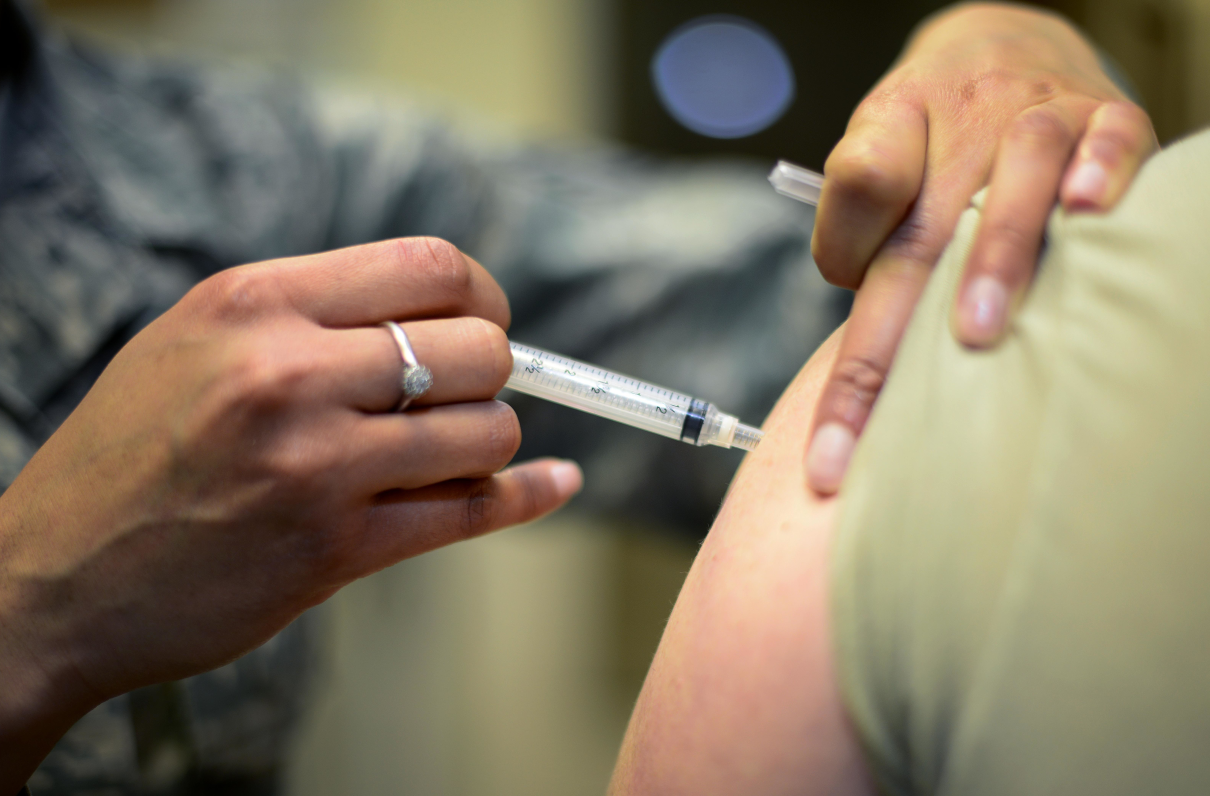The top medical official in the Veterans Health Administration (VHA) used a recent message to warn veterans and VA health care employees of the impending influenza (flu) season and urging individuals to get their annual flu vaccination before Nov. 30.
The move comes as VA continues battling the coronavirus pandemic, and as talk of the development of COVID-19 vaccines may lead to concern or confusion about the annual flu shot.
“Vaccination of both Veterans and health care personnel is the cornerstone of our efforts to prevent flu transmission,” noted Dr. Richard Stone in his message to veterans and VHA staff. “This will be especially important this year due to the coronavirus pandemic. Vaccination of health care personnel reduces their risk of becoming infected with the flu and transmitting it to susceptible patients and coworkers.”
The message also included a policy and guidance directive requiring flu vaccinations for all health care workers in VA, calling for few exceptions to the policy. This is a departure from earlier directives strongly recommending, but not mandating, flu shots for health care personnel.
Flu Shot Details
Veterans enrolled in the VA health care system should contact their primary care provider about vaccine availability. As of Aug. 12, VA had not updated its online influenza materials to reflect the 2020-21 flu season.
According to Centers for Disease Control and Prevention (CDC) guidance, “Getting vaccinated in July or August is too early, especially for older people, because of the likelihood of reduced protection against flu infection later in the flu season. September and October are good times to get vaccinated. However, as long as flu viruses are circulating, vaccination should continue, even in January or later.”
TRICARE beneficiaries are covered for the flu shot; they can learn more at the TRICARE website. More information on the vaccine via Health.mil is available here.
Why Get the Shot?
More than 490,000 people nationwide were hospitalized with influenza during the 2018-2019 flu season, according to CDC estimates. More than 4,600 veterans were hospitalized last year, per the VA, with more than 600 requiring intensive care. Another 27,000 veterans sought outpatient care related to the flu, and VA triaged more than 13,000 calls for similar conditions.
Stone wants to prevent a repeat of these same numbers, especially during the pandemic.
“From both a human and an operation perspective, we need you to get your flu vaccine,” he said in his message.
[MORE FROM THE CDC: CDC.gov/flu]
The pandemic crisis certainly complicates communication, especially when the nation is still battling COVID-19 and fear surrounding it. Veterans are concerned about how to access health care in general, and being asked to get a flu shot, amid all this chaos and recent reports of a potential COVID-19 vaccine that might be available by year’s end, adds additional stress an uncertainty.
Vulnerable veterans need trusted and reliable information. MOAA has reached out to the VHA to share veterans’ concerns, asking the department to work with MOAA and other veterans groups to convey important information (like details on getting a flu vaccination).
MOAA also has asked for details on VA’s plans to combat likely misinformation and fear as COVID-19 vaccinations become available, so veterans can make informed decisions. Stay tuned for future information as it becomes available.
MOAA Knows Why You Serve
We understand the needs and concerns of military families – and we’re here to help you meet life’s challenges along the way. Join MOAA now and get the support you need.

